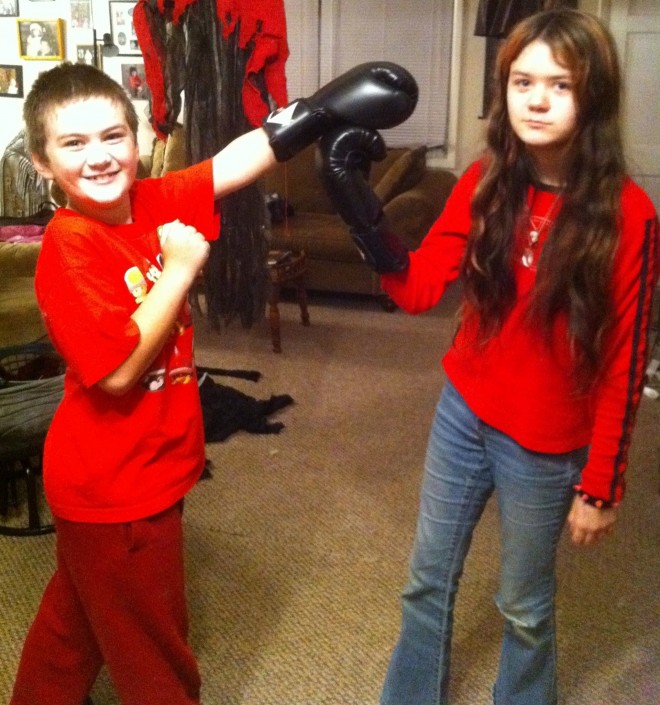 “It’s not fair! You always talk about Autism, Autism, Autism! You always write about him on your Blog and put his pictures everywhere!”
“It’s not fair! You always talk about Autism, Autism, Autism! You always write about him on your Blog and put his pictures everywhere!”
My firstborn isn’t playing the favorites card, she’s a little sensitive about Autism. Especially since my website, training classes, workshops and marketing materials use stories and facts about her brother as their framework. Sure, I can remind her about all the special privileges she receives as the eldest and the times we go places together without her brother. But that isn’t what she wants to hear. She wants to know that she’s valued, unique, and most of all, heard.
Here are some ways to make sure siblings feel included.
1. Don’t keep them in the dark.
The unknown is scary to children – especially when it’s surrounded by energy that may be tense and anxious. They are extremely sensitive to your feelings, so sugar coating or avoiding the subject of Autism in the home causes disharmony instead of protecting your child’s feelings.
Additionally, you should be open (in an age appropriate way) about what’s behind certain behaviors and that they are rarely, if ever intentional. Impulsivity and Sensory Processing issues can be hard to explain, but there are some amazing children’s books out on the subject of siblings and Autism. It’s a great place to start.
2. Consistent rewards.
It’s easy to get caught up in praising your child with Autism for every mark of progress and milestone. It is necessary. You may be missing the fact that the sibling is also counting every reward… and if the score isn’t evened they will remember.
Find a way to celebrate and recognize every achievement from all of your children.
This can also go the other way: many times my daughter will feel that her brother doesn’t get a just punishment for something she may have gotten in trouble for previously. Situations like that can indeed be a sticky-wicket, as your child with ASD rarely breaks rules intentionally. Unwanted behaviors still need to be addressed, and it helps to explain to siblings that discipline may be unique to each family member but no one is “getting away with it”.
3. Sibling-only time.
Often parenting our child with Autism requires an unequal amount time and energy for that child. It’s so important to schedule regular one-on-one time with your neurotypical child. Whether it’s a ritual of ten-minute blocks each night before bed or a once a week “girls night out” (in my case it’s my daughter), this time is to be treasured together.
4. Perspective and participation.
There are times when I’m truly stumped on one of my son’s behaviors that affect the entire family dynamic. Without sending her the message that I need her to solve the problem, sometimes I ask for my daughter’s perspective. She can throw some fresh ideas on the table that I may not have considered. Again, I never make her participate if she doesn’t want to or cause her to feel that she has to have the solution. She does appreciate that I value her opinion and viewpoint.
5. Support and expectations.
It’s important for siblings to feel that they are not alone in their experiences. There are many sibling support groups to share their struggles and feelings, but don’t force it. In our case, my daughter had a good time visiting one of our local groups but quickly discovered that being with people that focus on talking about her brother still makes her feel like the world revolves around him. She flourishes when involved in groups or classes that are uniquely hers, like her art community and comedy improve classes.
Equally as important, do not expect your child to be overly responsible for the child with Autism. Unrealistic expectations can lay an unbearable amount of pressure on siblings. This isn’t a free pass to skirt all family responsibility; check in often and encourage open communication throughout the journey.
What are some ways that you keep siblings out of the shadows and keep things “fair” in your house? Share by commenting below or on the SOA Facebook page!






